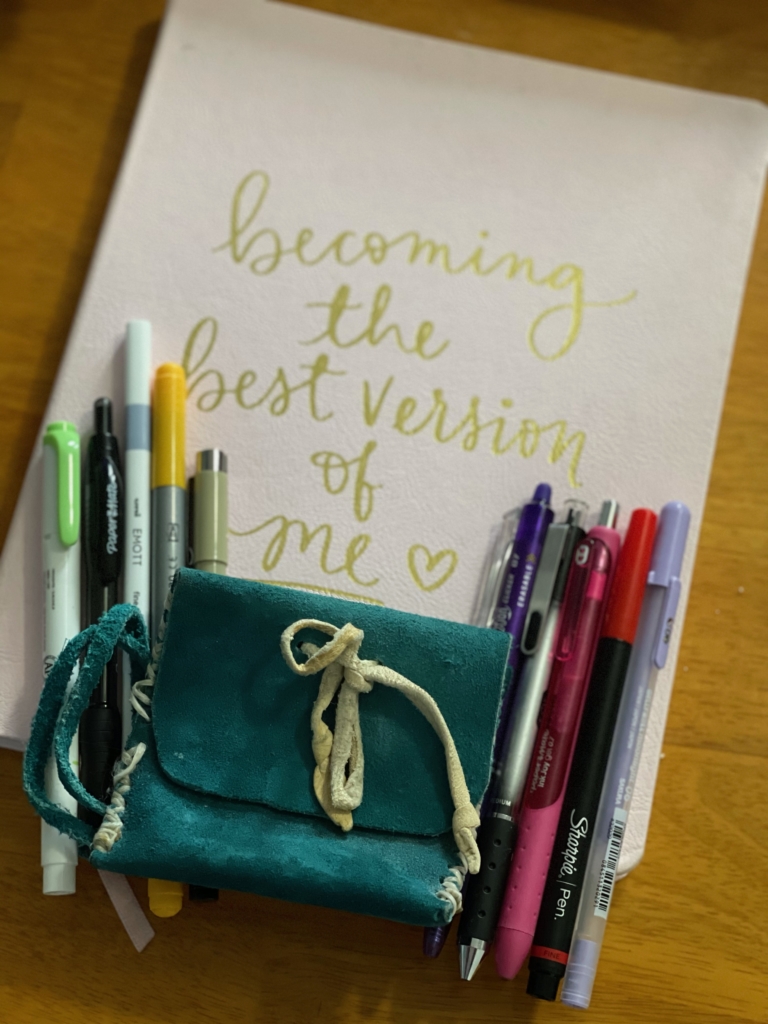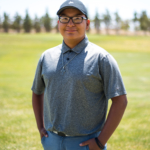By: Jessica Tsosie | Pueblo of Jemez
Mental health is important every day, every month. This month isn’t like any other month, May is Mental Health Awareness Month. Like so many others, I have struggled with prioritizing myself and my own mental health for the sake of not having to be a burden on anyone. If you asked someone or if someone asked you about Jessica Tsosie, I’m sure you’d hear things like, “She’s athletic, she’s educated, she’s helpful, she’s family oriented and she’s hard-working”. If you saw my social media accounts you would say, “She seems happy.” If you saw me in person, you would think she’s busy with her two jobs and college courses. But what you wouldn’t see, were my struggles and anxiety, the things that were taking a toll and weighing me down.
What I want to share with you is one of the most challenging and personal stories of my life. My hope is that by sharing, I can spread awareness and help others who may be going through an overwhelming time in their life. It’s true when people say, “You don’t know what people are going through”. To me, this is a silent cry that we all encounter. As Native Americans, I feel we tend to dismiss and bottle up our emotions because we must be “strong.” We are strong, and I’m proud of my culture and teachings, but how do you battle anxiety, depression, grief, tiredness, loneliness, uncertainty, doubt, fear, etc., and be strong at the same time?
In November of 2020, I had a life changing experience, and it was one of the darkest days of my 27 years. Prior to this day, like anyone and perhaps everyone, I had my struggles with life’s challenges. The pandemic added some more unnecessary and unwanted stress and many other emotions. Nonetheless, I felt as if I was finding balance in certain areas of my health. But I’d take one step forward and fall 10 steps back. I try not to think about that day last November, but I remember it vividly. It was a Thursday afternoon, and it could have very well been my last. There was a moment that made me feel like, I would rather be gone than to be alive and feel like this. Feeling unworthy, unappreciated and as if my whole existence didn’t matter led me to the backroads of Jemez with tears running down my face, wanting to end the hurt, feeling the pressure.
Coming out of the dark and clouded thoughts were my little brother and my godson. As more of my clouded thoughts cleared, I thought about my parents, my friends and my life in its entirety. It’s been six months since my darkest day, and to say I’m grateful, thankful and blessed is an understatement.
On that very same day, I was able to make a trip to my clinic and speak with a therapist. It was such a relief to talk to someone who didn’t know me! I didn’t feel any judgement, I felt safe, secure and heard. I let it all out, I didn’t hold back and by the end of our session I felt like so much weight was lifted off my shoulders. But I also felt so overwhelmed, emotionally and physically. I was tired, and it took me a few days of rest to feel like myself again. The few people I told about my struggles were supportive and loving, but the words that stood out the most were, “I would have never known.” I would have never known either.
Coming out on the other side of things, I knew I had to make my health a priority. Like physical health, mental health is so important to our overall wellness. The brain is like the motherboard of how we think, feel and act. If we aren’t taking care of our mental health, other areas of our life start to suffer. Whether that be how we view ourselves, which affects self-esteem, confidence, and knowing or seeing your full potential. Our mental health has many moving pieces and is extremely important and probably the most ignored part of our overall health and wellness.
One way I went about prioritizing my mental health was writing. I love to write, I love to collect pens, so I thought to myself, “let’s trying writing on a piece of paper.” It wasn’t a “dear diary” kind of writing, it was to write down every emotion I ever felt in that single moment. I wrote down everything that was said and everything that happened. It wasn’t to relive it all; it was a reminder to myself that I was able to get through those dark thoughts. I write when I feel a sense of uncertainty, anxiety, fear and sadness. This has truly helped me let go of unnecessary things, negative energy, especially things that I can and can’t control. But above all, as a Native American I continue to pray. I pray in the morning with cornmeal, and I pray at night before I fall asleep. I talk to my grandparents and all those who have gone before me, to ask them for guidance, strength and courage. But the most important is I pray and thank the creator for giving me the gift of life!
Mental illness can sneak up on anyone, no one is immune to feeling sad, depressed or unworthy. Every emotion we feel is valid! Far too often we neglect our mental health because it is taboo to talk about our feelings or we are taking care of other things or other people before ourselves. Which is why it is important that we are all kinder and more open with one another. We need create safe places for our friends, children and families to talk about their feelings. A lot of the time, we would prefer to talk to our relatives and friends, someone we can trust, but fear of judgement often holds us back.
This may seem like an ad, where you may skim through the advice and tips because it does not personally apply to you. However, let my story be a valuable lesson to take some time to research/read up on topics such as mental health. You just never know.
Here are some tips on how to be a good listener and supporter to your friends and family who may confide in you:
- Listen without distractions
If you need to talk to someone let them know the conversation is serious and that you need their undivided attention. If you are that someone who is listening, be present and give your full attention. - Be sympathetic and non-judgmental
Don’t get angry with the person. Listen to understand, not to react. - Offer support
Let them know you care about them. - Take the person seriously
Call for help if needed. - Avoid asking questions such as “Why?”
Asking “Why?” will make someone feel rejected, unheard, alone, guilty, like ‘no one understands’. - Don’t dismiss any of their emotions – their feelings are valid
Be considerate of the language you use. Don’t tell someone to man up/woman up, you’re stronger than this, this isn’t the right way, what are you running away from, face the facts. This kind of language does more damage.
Other Helpful Resources:
National Suicide Prevention Lifeline 1-800-273-8255
https://www.wernative.org/my-mind/mental-health-challenges/when-life-sucks
https://www.mhanational.org/issues/native-and-indigenous-communities-and-mental-health
Local hotlines and services provided to you in your own community are beneficial and a great resource when seeking aid with your mental health.
At the NB3 Foundation we aim to promote positive health outcomes for Native youth and communities. We recognize mental health plays is an integral role in one’s overall health, and we strive to equip our youth with knowledge and resources that will benefit their holistic health for their lifetimes.









